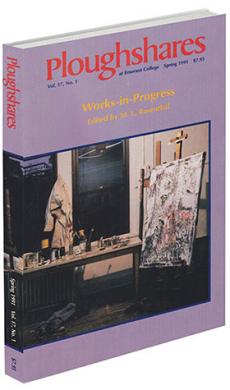rev. of Powers of Congress by Alice Fulton
Readers familiar with the verbal dazzle of Alice Fulton's previous collections might assume that the title of her third is a sly allusion to sexual politics. But Fulton is engaged by all sorts of meetings and collisions, from the nuclear family to the electron, as well as by the individual's confrontation with God. Fulton's equanimity and good humor allow for a certain optimism (". . .if death divests the self/it's the sole event in nature/that's exactly what it seems," she writes in "Cascade Experiment"), but in other poems, like "The Gilt Cymbal Behind Saints," she remains a skeptic with a moral vision: ". . .we can choose/God's heaven where we'll sit around and veg — /. . . or the surrogate/Eternities of earth: art, kids. a hedge/Redux in case forever's counterfeit." The book's longest, most ambitious poem, "Point of Purchase," compares God with billiards (perhaps alluding to Einstein's assertion that God does not
play dice with the universe) and takes its epigraph from Emily Dickinson's "Sermons on unbelief ever did attract me."
Four voices offer a scribbled gloss to Fulton's dramatic monologue. One explains the text in trendy critical terms; one bashes the poem, another the speaker; a fourth slowly reveals the death of a beloved sister. There's a sculptural volume to this poem which goes beyond Fulton's affinity for the visual (acrostics; a poem about birth whose shape mimics the waves of contractions) as her verbal riffs go beyond music. Fulton invents chunky portmanteau words like "dowagaic," and effortlessly runs the scales from lowest to highest levels of diction in a book where "heaven" lies down with "veg" and a philosophical poem transmutes the banal consumer-ese of its title.
Powers of Congress is a tour de force by a poet who continues to push the limits of understanding and expression. —
Joyce Peseroff

